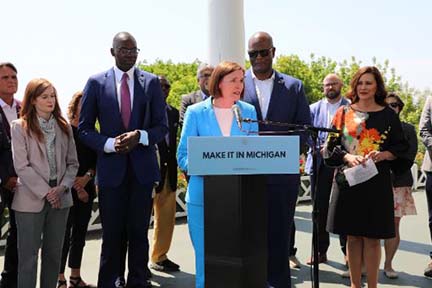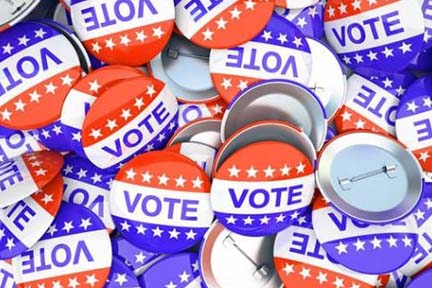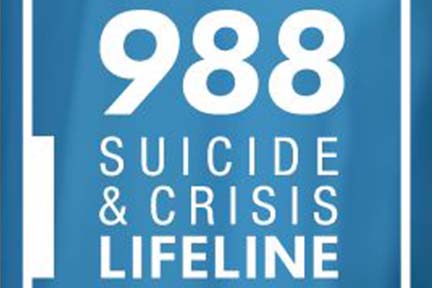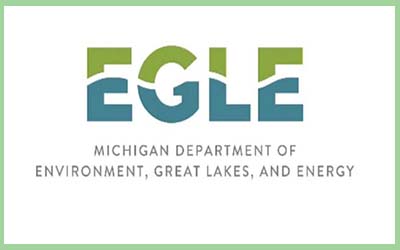Gov. Whitmer Signs Bipartisan Legislation Expanding Voting Rights
Legislation will implement Prop 2, voted for overwhelmingly by Michiganders last November
LANSING, Mich. — Today, Governor Gretchen Whitmer signed a package of bipartisan legislation expanding voting rights. The bills implement Ballot Proposal 22-2, also known as ‘Prop 2,’ which was passed overwhelmingly by Michiganders last November. The new laws make it easier to vote in a secure way, ensuring Michiganders can make their voices heard in every election.
“Voting is the cornerstone of our system of government,” said Governor Whitmer. “Michiganders spoke with a clear, united voice last November when they voted overwhelmingly in favor of Proposal 2, expanding voting rights. Today, I am proud to sign bipartisan legislation implementing the will of the people, ensuring they can make their voices heard in every election. Let’s keep fighting to expand the constitutional right to vote freely, fairly, and securely with commonsense reforms so we can build a government of the people that delivers for the people.”
“This is what it means to have a government that works for the people,” said Secretary of State Jocelyn Benson. “Last November, Michiganders turned out in record numbers to expand our voting rights. Legislative leaders worked collaboratively with my office, local clerks, and voting rights advocates from around the state to make sure these bills provide the flexibility and resources we need to carry out the will of the voters. This was a thoughtful, bipartisan effort and I’m grateful to the leaders in both chambers for getting this done. We are ready to work with Michigan’s clerks to implement these new laws in time for next year’s elections.”
“Michigan voters overwhelmingly supported Proposal 2 last year and sent a clear message to the Legislature: reduce barriers to voting and increase access to the ballot box,” said state Senator Jeremy Moss (D-Southfield). “I’m proud to lead this effort that provides more convenient early options to vote through nine days of in-person voting before Election Day, easier ways to sign up to receive absentee ballots, required drop boxes in each community, and more. This – along with early processing of absentee ballots, just as 38 other states do – will allow for our accurate election results to be published much quicker and further instill confidence that our voting systems work. With Gov. Whitmer’s signature, we are strengthening the core functions of our democracy and ensuring Michiganders can fully participate in their representative government.”
“MAMC members were honored to work side by side with our county colleagues and our legislators to help shape these important laws,” said Jackie Beaudry, Ann Arbor City Clerk, President of Michigan Association of Municipal Clerks. “We are excited for the implementation of early voting in 2024 as approved by Michigan voters in Proposition 22-2.”
“After many months of collaboration between local clerks, county clerks and legislators, these laws create the framework and tools needed to carry out the will of the voters in a safe and secure manner,” said Vanessa Guerra, Saginaw County Clerk, Co-Chair of the Michigan Association of County Clerks Legislative Committee.
“Congratulations to Michigan voters for adopting commonsense voting reforms last November!” said Christopher Thomas, former nonpartisan Michigan Director of Elections. “The legislature wasted no time enacting these reforms into law and providing financial assistance to state, county and municipal election officials, who are now well-positioned to provide new voting opportunities to Michigan voters in the 2024 election. With the Governor’s signature, Michigan returns to the forefront of states with well-balanced election systems, offering voters secure voting and increased access to the ballot box.”
“The signing of today’s bills into law will strengthen our democracy,” said ACLU of Michigan Executive Director, Loren Khogali. “The new laws will ensure Michigan elections are secure, accessible, and convenient. Together, we must build on this progress, as we continue to create a voting system that enables every voter to make their voice heard and ensures every vote is counted.”
“We have a lot to celebrate today. All of these laws will expand access to the ballot, which voters resoundingly endorsed through their support of Proposal 2,” said Micheal Davis, Jr., Executive Director of Promote The Vote. “Even better, these laws provide more clarity to both voters and election officials. Voters now have unprecedented choice regarding when and how they cast their ballot. And with the supporting pre-Election Day tabulation bill, we should see election results more quickly, making Michigan a leader in voter experience.”
“The late Congressman John Lewis told us that the right to vote is the most powerful non-violent tool we have in a democracy’, said Reverend Dr. Wendell Anthony, President of the Detroit branch of the NAACP. “Today, Michigan is leading the nation in providing those tools to protect and expand the rights of all the people to vote. As other states are suppressing the fundamental right of their citizens to vote, the state of Michigan serves as a model in the effort to demonstrate how we have indeed increased our own. We in Michigan say to everyone, take your souls to the polls and vote, because your very lives depend upon it.”
“I applaud the people of our great state on facilitating access to a fundamental, Constitutional right—the right to vote—which as we navigate the many issues facing us, has never been more important,” said Cle Jackson Jr., President of the Greater Grand Rapids NAACP. “This legislation implements the changes that the people of Michigan chose in November. A Michigan where more people participate will be a more equitable Michigan for all.”
Senate Bill 339, sponsored by Senator Mallory McMorrow (D-Royal Oak), will establish a website for Michiganders to track their ballots. It will ensure voters are notified when their vote is received and counted and inform them if there are any errors and offer a solution to remedy them.
“Michiganders spoke loudly in favor of expanded voting rights – and voter information – with the passage of Prop 2 of 2022,” said state Senator Mallory McMorrow (D-Royal Oak). Part of the that conditional amendment requires an updated ballot tracking system so voters will know exactly where their absentee ballot is, and the option of receiving updates via email or text. The signing of SB 339 today is the next step in implementing Prop 2 and empowering voters with an updated system to track their ballot in every election.”
Senate Bill 367, sponsored by Senator Jeremy Moss (D-Southfield), requires at least nine days of early voting before each statewide and federal election so people can find a convenient time to vote that works for them without facing lines on Election Day. Also authorizes pre-processing and early tabulation of absentee ballots, ensuring a timely result after polls close on Election Day.
Senate Bill 370, sponsored by Senator Sylvia Santana (D-Detroit), implements requirements to allow voters to fix clerical errors with their ballots. It also requires prepaid postage for all absentee ballot applications and envelopes, saving voters time and trips to the Post Office.
“I am proud to have legislation to help uphold the will of Michiganders in implementing Proposal 2 and expanding voting access and improving our democracy,” said state Senator Sylvia Santana (D-Detroit). Clerks play a vital role in ensuring safe and secure elections. Providing clerks the tools to verify signatures on absentee ballot applications will continue to ensure our elections are completed with integrity and fairness.”
Senate Bill 373, sponsored by Senator Stephanie Chang (D-Detroit), allows Michiganders to use their US passport, tribal photo ID card, military ID card, or student ID to identify themselves when they show up to vote. As has always been the case, they will need to be registered to vote in their precinct to cast a ballot. This law simply expands the valid forms of ID accepted to certify that you are who you say you are.
“Michiganders have shown time and again that they support increasing access to our democracy, and I’m thrilled to be part of this effort to codify changes from Proposal 2 into law,” said state Senator Stephanie Chang (D-Detroit). Students of any valid educational institution should be able to use their student ID as voter ID so we can increase voting among students of all ages. Also, I’ve introduced legislation several times before to allow municipal ID to be used as voter ID and am excited that this is finally Michigan law. Thank you to Senator Moss, Secretary Benson and every organization who made this bill package a reality.”
House Bill 4696, sponsored by Representative Penelope Tsernoglou (D-East Lansing), makes disclosing an election result from an early voting site before Election Day a Class E felony against Public Trust with a statutory maximum of five years’ imprisonment.
“Ever since I took office, making elections free, fair and accessible has been a top priority for me. The voters spoke loud and clear in November, and I’m proud to be part of the effort to put Proposal 2 into law,” said state Representative Penelope Tsernoglou (D-East Lansing), chair of the House Elections Committee. “This package of laws will ensure that every voter can exercise their constitutional rights. I will continue to work to strengthen voting rights and safeguard democracy in Michigan.”
House Bill 4697, sponsored by Representative Matt Koleszar (D-Plymouth), requires at least one secure drop box for every municipality or at least one drop box for every 15,000 registered voters in municipalities with more than that many registered voters. These drop boxes will be used to return absentee ballots safely and securely and must be accessible 24 hours a day 40 days before an election and until 8 p.m. on Election Day.
“Voting is one of our most basic foundational rights,” said state Representative Matt Koleszar (D-Plymouth). “Access to drop boxes has proven to be a secure, effective way for Michiganders to exercise that right and I’m thrilled Governor Whitmer is signing HB 4697 into law.” – State Representative Matt Koleszar
House Bill 4699, sponsored by Representative Erin Byrnes (D-Dearborn), makes it so voters can fill out a single application to vote by mail and have a ballot mailed to them in all future elections without going through the hassle of extra paperwork, saving them time and money.
“The implementation of Proposal 2 will create generational change for Michigan voters at a critical moment in our democracy,” said state Representative Erin Byrnes (D-Dearborn). House Bill 4699 will establish a permanent absentee voter list, easing access to the ballot and empowering voters with the option to vote by mail indefinitely. I am thrilled to be part of this process, and excited to see Michigan leading the way on voting rights.”
House Bill 4702, sponsored by Representative Penelope Tsernoglou (D-East Lansing), increases the maximum size of an election precinct from 2,999 active registered electors to 5,000, lowering costs for local governments.
Michigan’s elections are free, fair, secure, and accurate and the results reflect the will of the voters. The results are certified and audited by Republican, Democratic, and non-partisan election officials.
In May 2022, Governor Whitmer signed executive directive 2022-04, instructing all state departments and agencies to identify and assess potential opportunities when engaging with Michiganders from all walks of life and all 83 counties to help eligible voters register and gain access to reliable information about voting, including displays in public spaces, printed materials, online information, public announcements, and social media posts. The executive directive can be viewed here.
In February 2023, Governor Whitmer signed Senate Bill 13, moving the state’s presidential primary to February and strengthening Michiganders’ votes and voices in the presidential primary.
In May 2023, Governor Whitmer signed Senate Bill 259, bipartisan legislation ensuring that absentee voter ballots from military and overseas voters are counted if received up to six days after an election.








